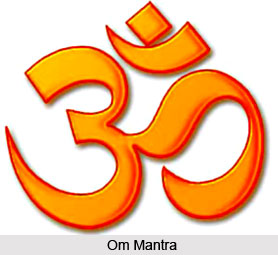 The Fire God has narrated the concept of Brahma. He has said that the knowledge of Brahma dispels the gloom of worldly illusion. It has been said in the Purana that the body is only a receptacle, and is not identical with the Soul, since a man retains the knowledge of his own separate personality, when he is asleep, and even when the bodily functions are brought to a temporary standstill. The Self (Atman) is not identical with the body, since the latter undergoes modifications, such as birth, growth, and decay, whereas the Self knows no change. The Soul is not identical with the sense organs, such as the eyes, etc., since the latter are mere instruments of knowledge and are not at all self-conscious. The mind, however calm and passionless, is not Self, since like the senses, it is not self-conscious, and only serves like a reflecting lamp, to throw light upon the vision of self, or in other words, to represent to the Self, the conceptions or images that are presented to it.
The Fire God has narrated the concept of Brahma. He has said that the knowledge of Brahma dispels the gloom of worldly illusion. It has been said in the Purana that the body is only a receptacle, and is not identical with the Soul, since a man retains the knowledge of his own separate personality, when he is asleep, and even when the bodily functions are brought to a temporary standstill. The Self (Atman) is not identical with the body, since the latter undergoes modifications, such as birth, growth, and decay, whereas the Self knows no change. The Soul is not identical with the sense organs, such as the eyes, etc., since the latter are mere instruments of knowledge and are not at all self-conscious. The mind, however calm and passionless, is not Self, since like the senses, it is not self-conscious, and only serves like a reflecting lamp, to throw light upon the vision of self, or in other words, to represent to the Self, the conceptions or images that are presented to it.
It has been said that the Self is not identical with life, since even in a dreamless sleep (Sushupti), one loses all consciousness, though his Self remembers after waking that he had been asleep. Consciousness, as manifest in states of sleep and waking, is too narrow to be considered one with the Self of a man, since there are states of consciousness of which we are perfectly unconscious, even when awake (subliminal consciousness). The Self is then something other than all these preceding categories, and is ensconced in the heart of each individual.
This universe always refers itself to the Self, which in connection with the senses and the state of waking, are represented by the letter A of the Pranava. The non-combined states of the five material principles contribute to the formation of the subtle or essential body. In fact it can be said that the Brahma or the Self does not commence to exist at any definite time, nor can it be said that it does not exist here and at present, clad in the garb of a human organism, nor does it take any shape when it goes out of the body. It is both connected and unconnected with the body. The non-discrimination of this fact is the cause of this world and the incarceration of self.
It is believed that Brahma is, identical with the Aditya Purusha and the mystic Om Mantra. He who knows Brahman, is freed from the fetters of life and becomes Brahmana at the end
Advaita Brahma
While discussing the concept of Brahma, Lord Agni has also narrated the concept of secondless Brahma or Advaita. It has been said in the Purana that the secondless Brahma can be attained to only by intelligence and not by performance of religious sacrifices and rites. The senses, which are but instruments of external knowledge, are to be annihilated by all means; and the intellect is to be lodged in the receptacle of perfect sleep, before the Self can catch the faintest gleam of its Supreme Prototype.
Attributes of Brahma
Brahma is the free one, the supreme light, the pure, the eternal and the infinite. He is the perfect knowledge, perfect liberty, perfect truth, perfect happiness, and one and without a second. Brahma is the knowledge, the remover of all obstacles that stand in the way of Samadhi. Brahman is the infinite joy, the eternal soul, the eternal truth. He is represented by the aphorism.












